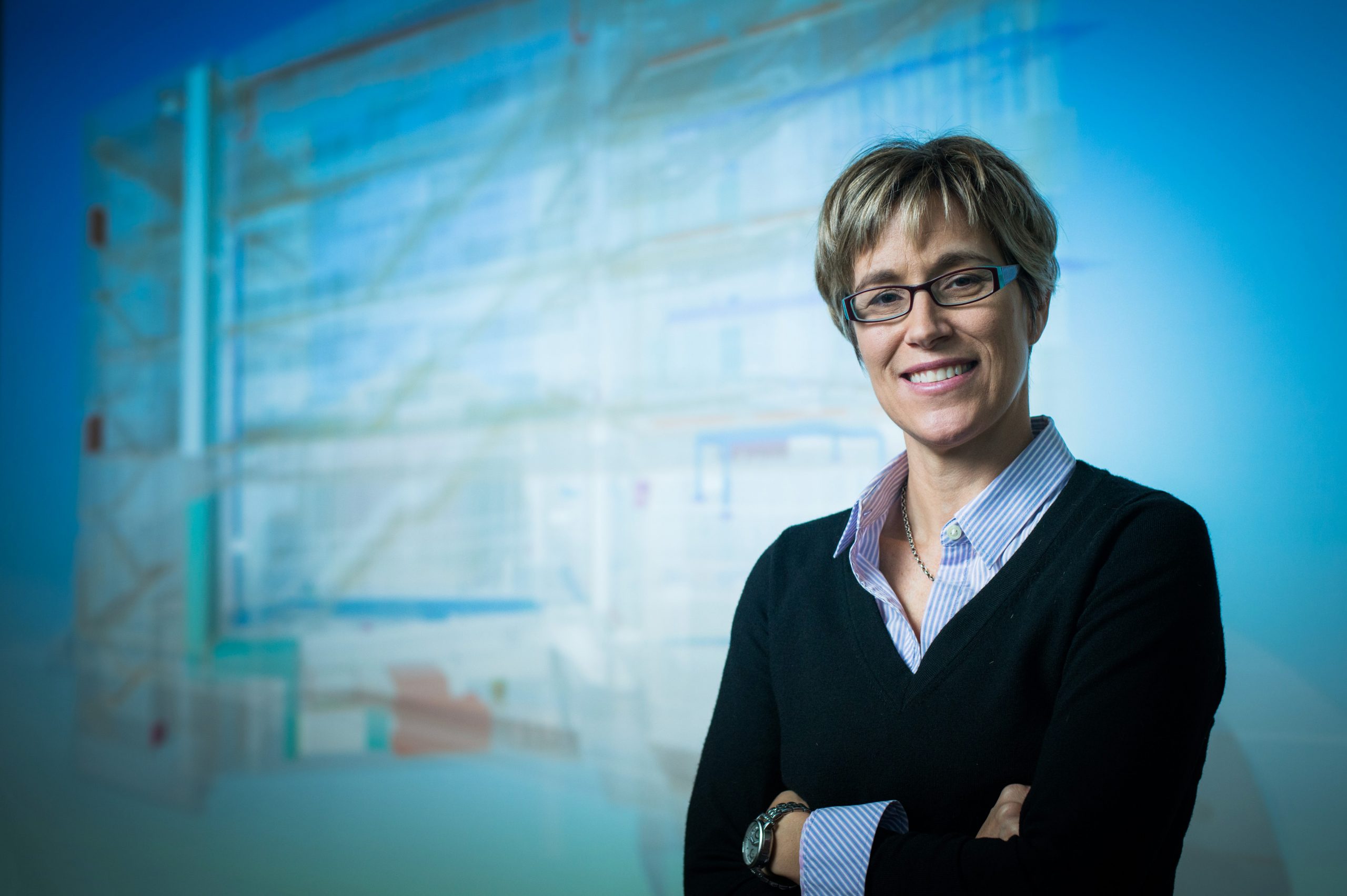Few women and a looming skills shortage could create a crisis for the industry
On the eve of International Women’s Day, UBC Public Affairs conducted a Q&A with Civil Engineering Associate Professor and Westcoast Women in Engineering, Science & Technology Faculty Associate Sheryl Staub-French, on her work to boost female enrolment.
Why are you concerned about the number of women entering the field?
Nationally, less than 20 per cent of students in university engineering programs are women. If a significant part of the talent pool isn’t even considering it as a career, you’re missing out on some of the best and brightest. And we’re facing some real labour shortages. Engineers Canada predicts a skill shortage of almost 100,000 engineers by 2020. Part of our work is to help address that skills gap by encouraging young women to explore career possibilities in engineering and science.
The other side of this is that from a business perspective, good diversity tends to relate to better outcomes, such as increased innovation and profitability. Yet, only 11 per cent of registered professional engineers are women. As a mom, it is also frustrating to think that my daughter will receive less encouragement to pursue engineering as a career than my son. Engineering is an excellent career – rewarding, creative, stable and well-paid – and I want my daughter to have the same opportunities as my son.
How do you plan to increase the number of women enrolled in engineering?
We will be connecting professional engineers, engineering students and schools, and creating hands-on activities that help students understand engineering.
Equally important is working with parents, teachers, and career counsellors to illustrate the benefits of an engineering career. When a student says, “I want to help people,” the possibility of a career in biomedical engineering should be presented alongside a career as a physician or nurse. When a student says, “I want to help protect our environment,” their university path choices should include environmental engineering or mining.
What should young women know about engineering as a career option?
Engineering is all about solving problems and helping communities. It’s such a critical profession. I believe if everyone understood what we do, equal numbers of young men and women would pursue careers in engineering.
My specialization is a great example. Civil engineers design and construct our built environment – roads, bridges, water treatment facilities and more. My work develops computer models that help designers and builders to visualize, analyze, and evaluate different design and construction options. This work addresses a real societal need because it helps to enhance the efficiency, cost effectiveness, and sustainability of the construction industry.
The UBC Faculty of Applied Science aims to boost the number of women enrolled in its engineering programs by 50 per cent in five years. A $500,000 gift from Goldcorp will be used to establish the Goldcorp Professorship in Women in Engineering at UBC, a professorship that focuses on promoting engineering as a creative and rewarding career. For more information, click here.
Original Q&A published here.
